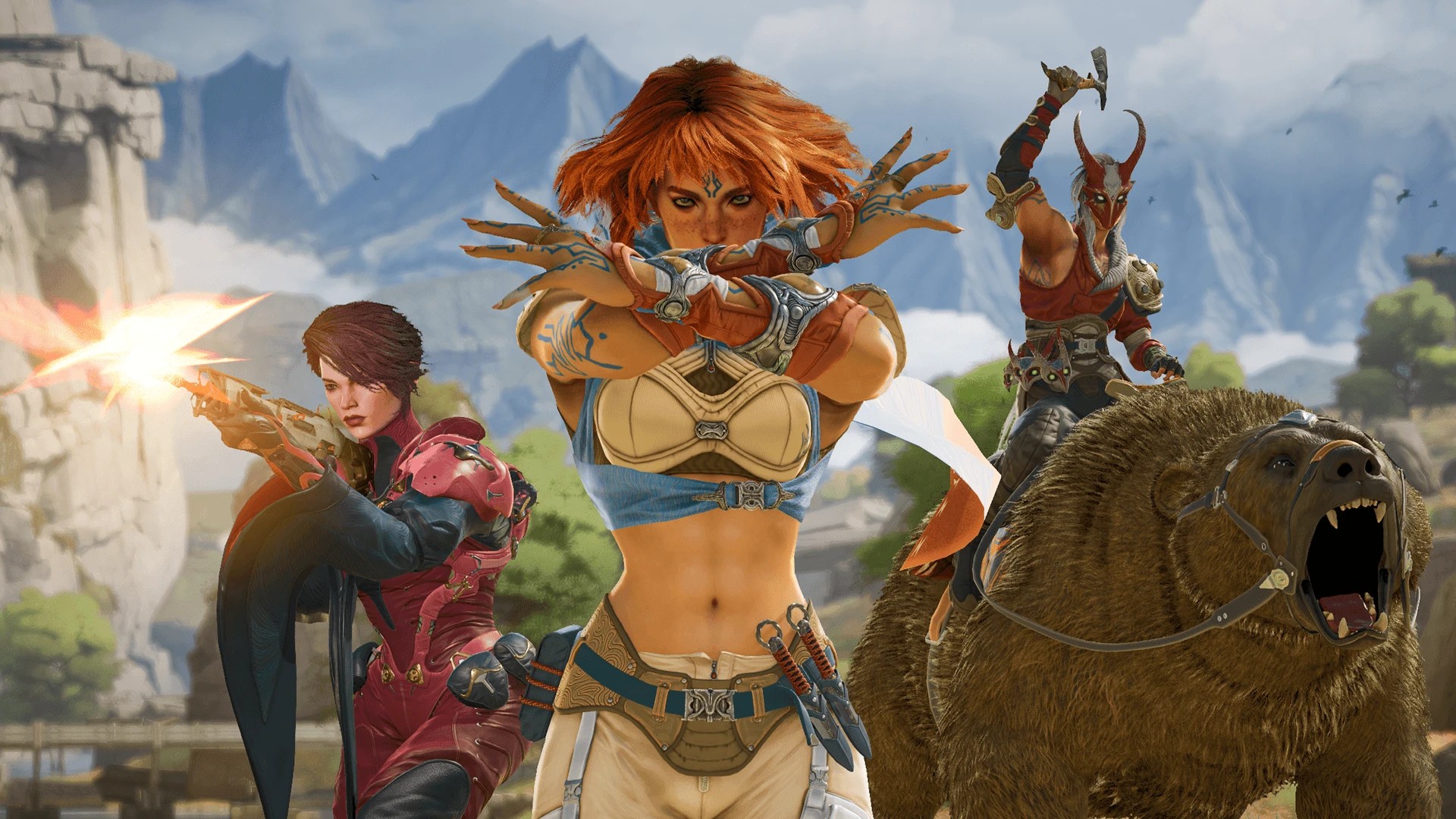Want a More Satisfying Game of Thrones? Read the Books
If Game of Thrones on TV has let you down, head down to your local bookstore and read the source material for yourself.
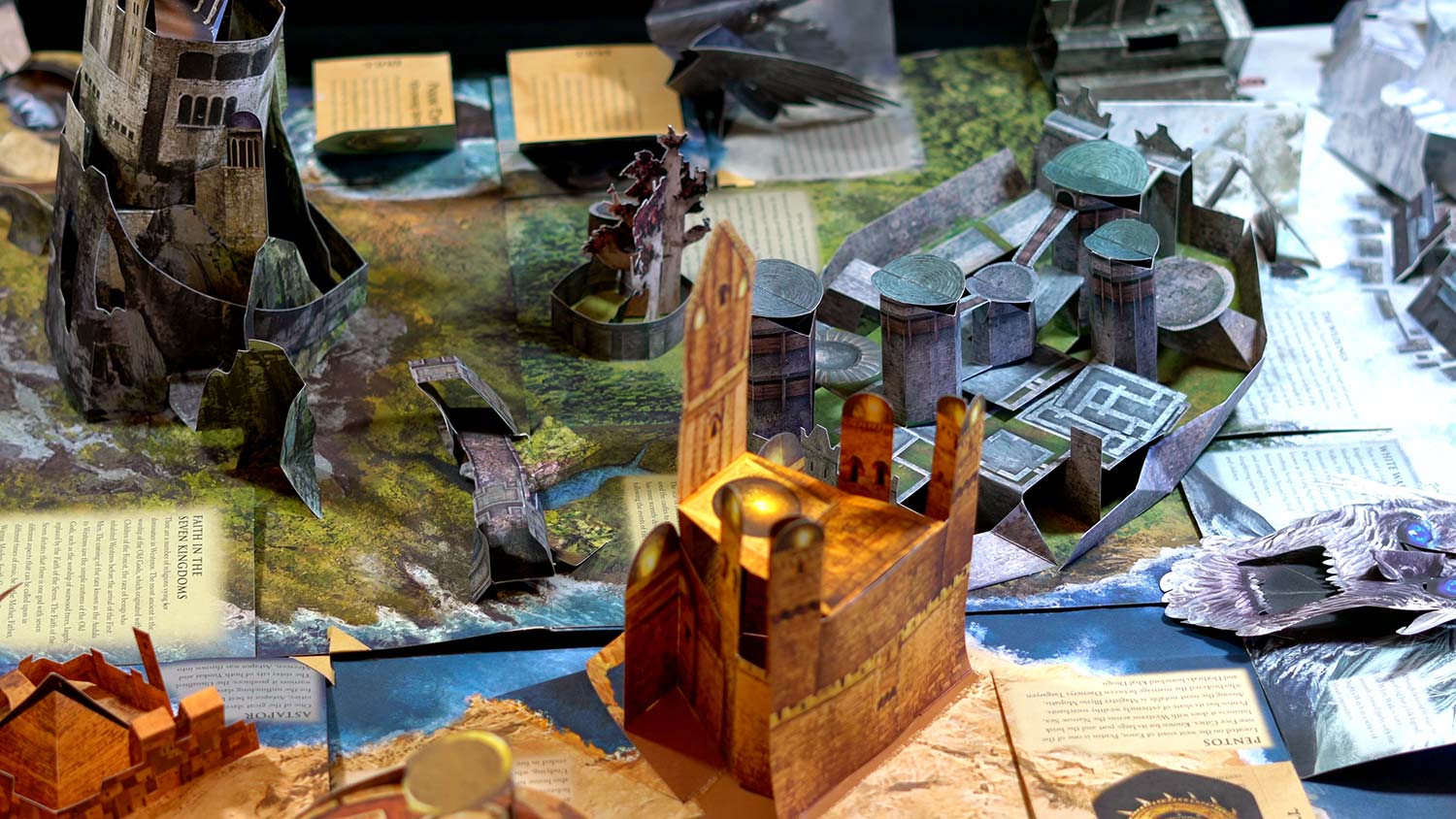
Update: Jon Snow's own TV show is officially in the works, and we have George RR Martin to thank for that information
Well, well, well. It's been a long four years, but I see we're finally going to have this conversation again. Game of Thrones, everyone's favorite medieval murder-fest TV show, is about to end — and fans are, generally speaking, not very happy with the way the ending is shaping up. Characters are acting completely irrationally! The cinematography has gone totally off the rails! The writing quality has taken a nosedive!
I'm not sure what to tell you, other than: A. You have my genuine sympathy, and B. We tried to warn you about this back in 2015, when the show's story first went ahead of the books.
Plenty of folks have read George R.R. Martin's A Song of Ice and Fire novels cover to cover and then gone on to enjoy the TV show. But I think it's fair to say that the majority of people watching Game of Thrones have not read all five doorstoppers, and thus don't have any frame of reference for the way the story is "supposed" to feel.
And, to be fair, who can blame them? The shortest book is 700 pages long, and the series tapers off after the fifth book. A Dance with Dragons came out in 2011; we are still waiting on The Winds of Winter. Martin has also said that the final book, A Dream of Spring, "is not even begun." ASOIAF is a dense, convoluted, demanding series that, if we're being brutally honest, may never get a definitive ending. It's all investment and no catharsis.
MORE: Game of Thrones Season 8, Episode 5 Recap: Enter the Mad Queen
But you know what? The book is almost always better than the adaptation, and ASOIAF is no exception. If Game of Thrones on TV has let you down, head down to your local bookstore and read the source material for yourself. You won't get an ending, but you will experience a much richer version of Westeros, with much more consistent characters.
Adaptation decay
Get instant access to breaking news, the hottest reviews, great deals and helpful tips.
This probably goes without saying, but Game of Thrones did not spring fully formed from the HBO headquarters. It's an adaptation of a series called A Song of Ice and Fire by speculative fiction writer George R.R. Martin. (He's not really a fantasy author, contrary to popular description; he's written just as much sci-fi and horror.)
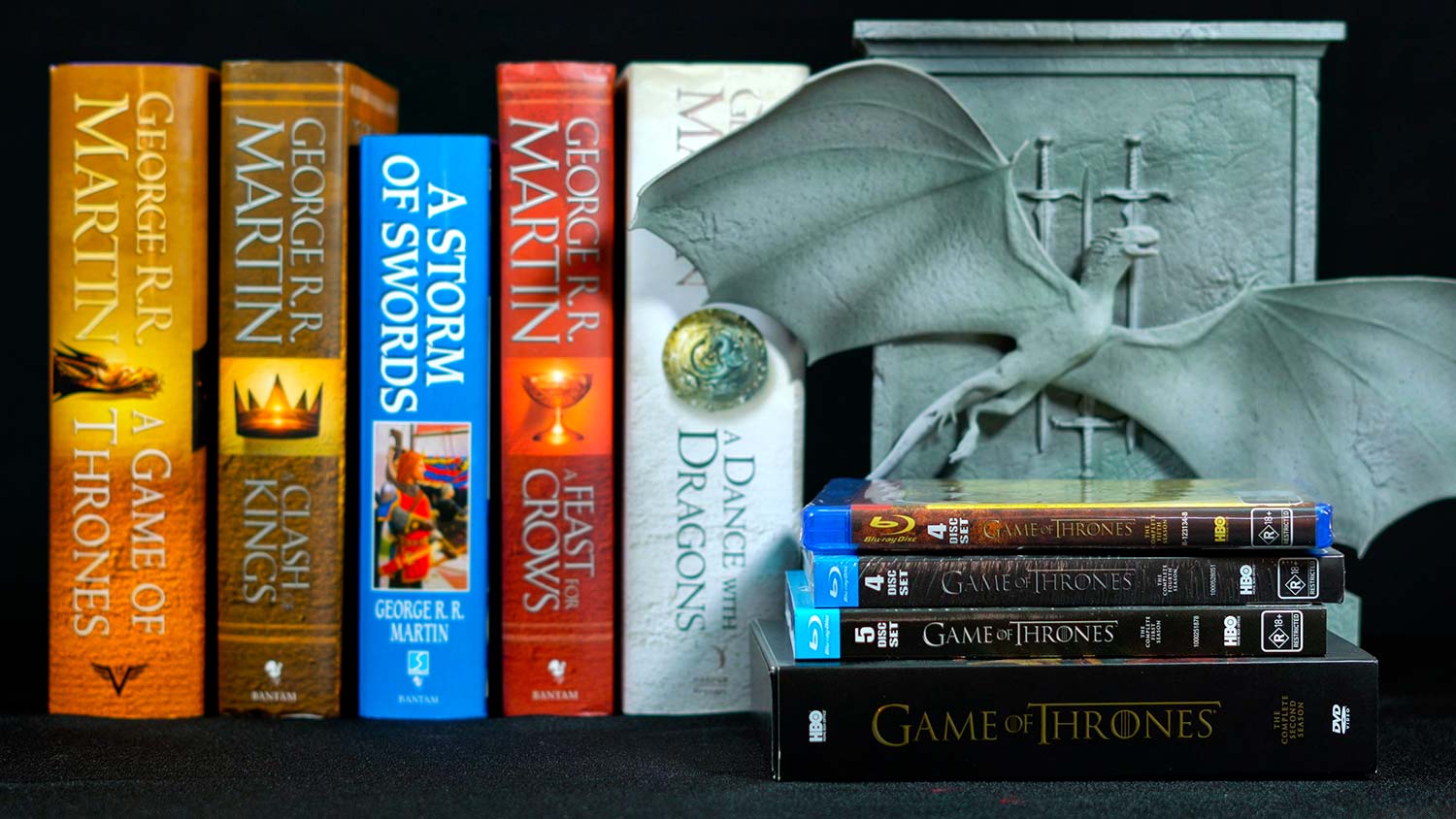
ASOIAF comprises five books: A Game of Thrones, A Clash of Kings, A Storm of Swords, A Feast for Crows and A Dance with Dragons. The novels hover between 700 and 1,000 pages apiece, and have been part of pop culture for decades. The first book came out in 1996; the fifth came out in 2011 — just a few months after the TV show aired its very first episode.
Altogether, ASOIAF contains 1,736,054 words spread across 4,244 pages. An average season of the show lasts about 10 hours across 10 episodes. As you can imagine, not every detail is going to make the cut. Game of Thrones is an interesting show about politics and action; A Song of Ice and Fire is a comprehensive compendium of an entire world. The books are replete with characters and subplots that never made it into the show, of course, but there's also a lot of stuff that just wouldn't fit in a TV format — history, genealogy, ecology and so forth.
MORE: 13 Shows Like Game of Thrones (to Get You Through a Long Winter)
TVTropes documents a phenomenon called "adaptation decay," which is pretty much what it sounds like: TV shows and movies based on books start off with the best of intentions, but as time goes on, they stray further and further from the source material — usually with detrimental outcomes. Granted, no TV show is ever going to remain 100% faithful to a book, partially because the print version can contain so much more information, and partially because visual media demands totally different storytelling techniques. But Game of Thrones started going off the rails pretty early on, and I'm frankly surprised that it took some fans this long to notice.
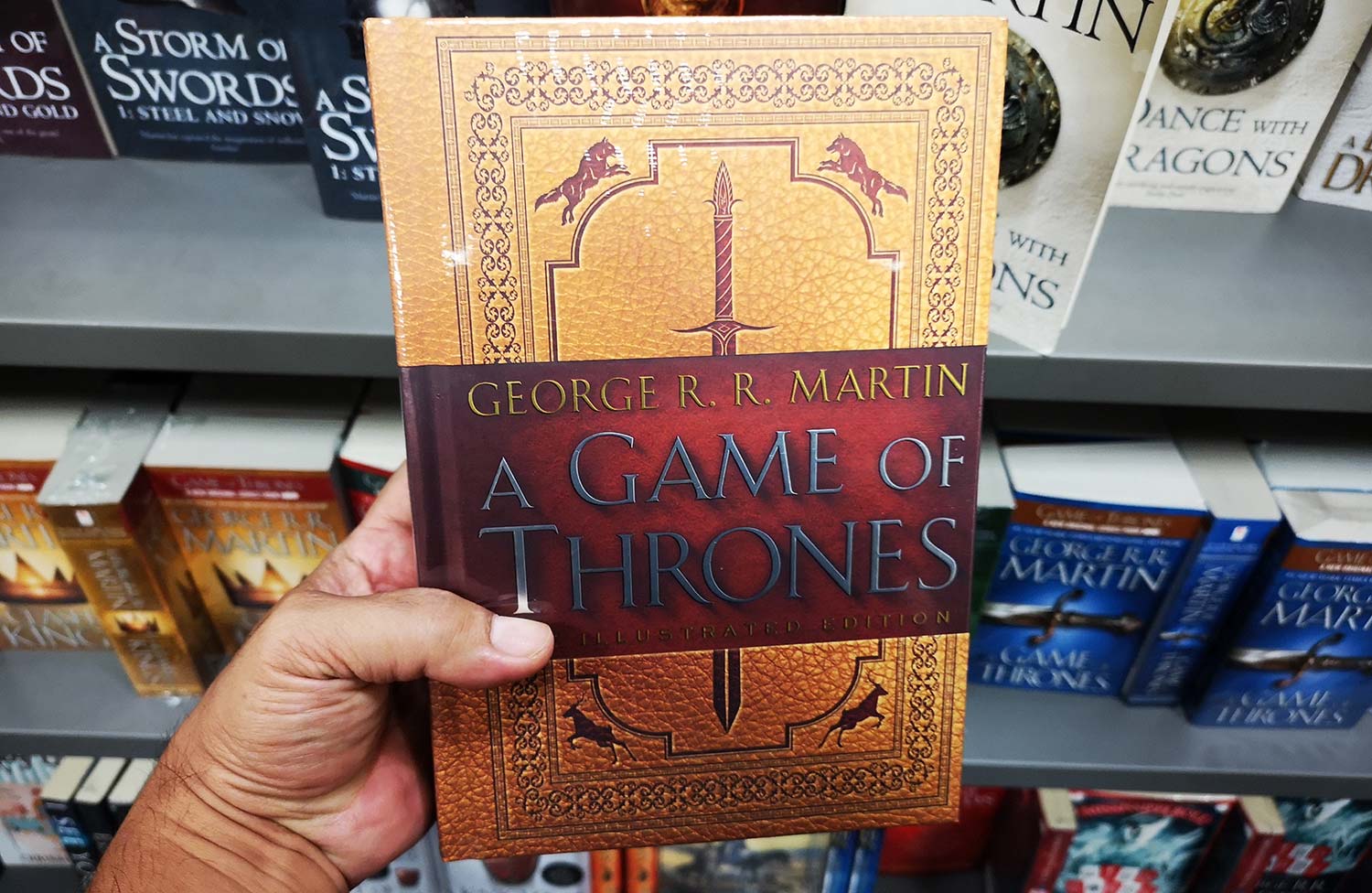
For example: Game of Thrones Season 1 was a thing of beauty, adapting A Game of Thrones about as faithfully as possible while cutting out a lot of colorful-but-extraneous details. The showrunners didn't really have to add or invent anything. But in Season 2, fans followed Daenerys Targaryen's instantly memetic quest to find her wayward dragons — and book-readers immediately started scratching their heads.
You see, Season 2 is an adaptation of A Clash of Kings, which put Tyrion Lannister and Stannis Baratheon front and center, on opposing sides of the titular conflict. Out of 69 chapters, Dany was present in five. Her presence in the book was mostly just to remind readers that she was still there, and to teach them a little bit about dragons in the process. She didn't accomplish much. And, honestly, that's not a problem in a book; a character can be present only when the author needs her to be. Dany came back full-force in A Storm of Swords, recruiting allies and conquering cities.
MORE: How to Watch Game of Thrones Season 8 Online
But TV just doesn't work that way. You can't take a popular character played by a bravura actress (and pulling a massive paycheck, at that) and leave her on the sidelines for a whole season. So the showrunners did what adapters have done since time immemorial: They made something up. Dany's "missing dragons" arc was pure invention and, love it or hate it, it was a sign of things to come.
As the show progressed, the writers made increasingly illogical leaps in order to keep the story tidy and followable. In Season 3, the show leaves out Lady Stoneheart, a fascinating character who raises some very unsettling questions about the nature of death in Westeros. In Season 4, the Hound faces off against Brienne of Tarth rather than random bandits, partially for dramatic effect, and partially because, again, you can't hire an actress like Gwendolyn Christie and then leave her out of the finale.
Deeper characters
For the record, it's probably worth stating that I haven't seen Game of Thrones since the end of Season 4: I knew that Season 5 would move past the books, and I didn't want to spoil it for myself. (Granted, this was back in 2015, when we thought that The Winds of Winter was right around the corner.) I've done my best to avoid spoilers for the show since I would really like to read the books unspoiled, if they ever come out someday.
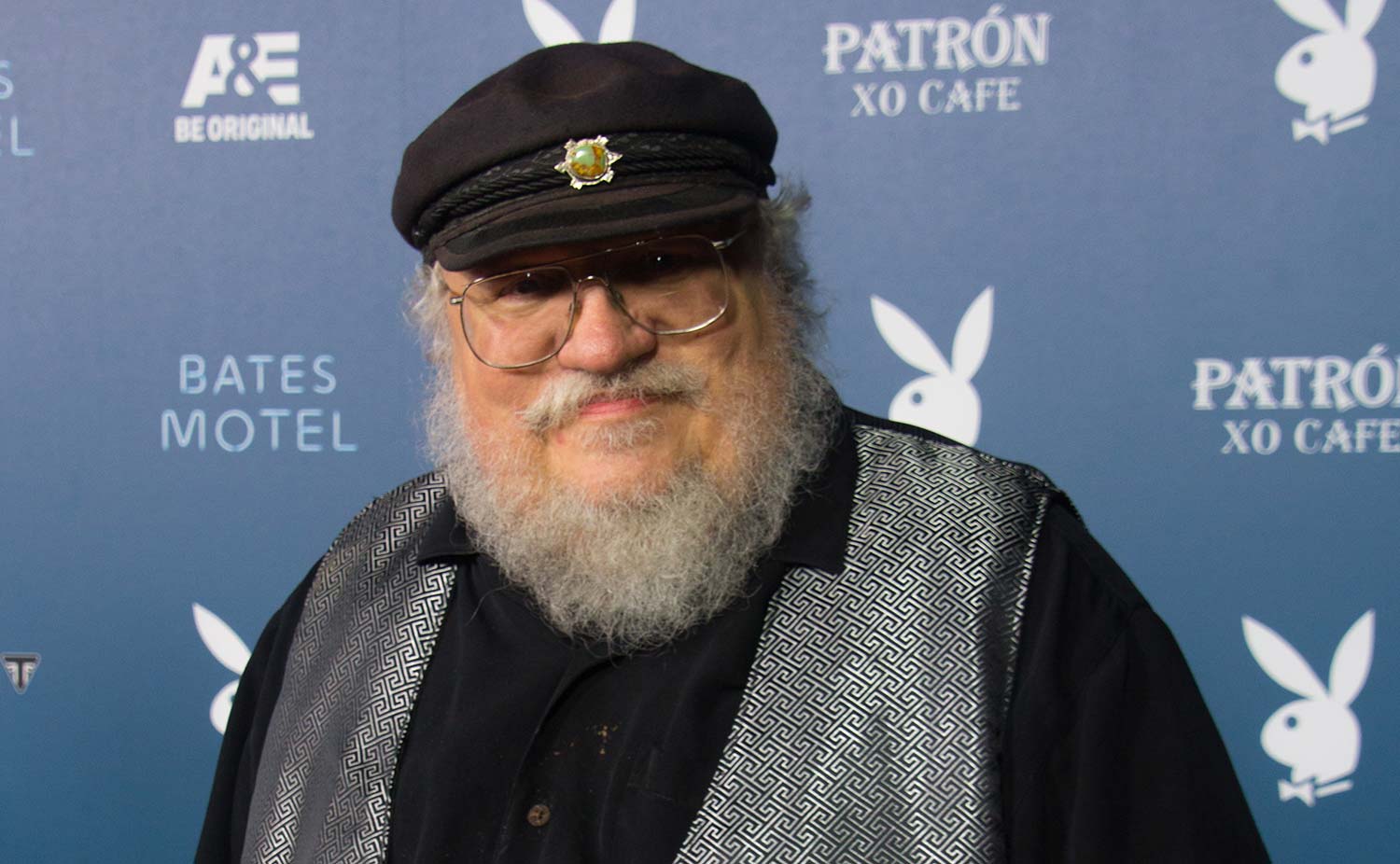
But I have osmosed enough of the general conversation from social media, friends and family to grok what people don't like about Season 8: The characters seem to be contorting themselves to fit the plot, rather than the plot revolving around the characters' natural actions.
The idea that narrative should arise from characters logically pursuing their own goals isn't new; Aristotle said as much in Poetics. But Martin is famous for his embrace of the "gardening" school of writing. To paraphrase Martin, there are two types of writers, architects and gardeners. Architects love planning elaborate stories, guided by outlines and established structures. Gardeners just build interesting characters and settings, push them against each other, and see what happens. And Martin himself is definitely a gardener.
When you have a completed ASOIAF book in front of you, the plot looks pretty cohesive in retrospect. But as it's unfolding, the plot looks like a beautiful mess of random happenstance and unpredictability. This is why characters die so frequently: because Martin has no particular reason to keep them alive. There doesn't seem to be a grand, overarching plan, just broad strokes about ice zombies and a civil war, and a bunch of morally gray characters who are interesting enough to follow as they navigate the situation.
MORE: Game of Thrones Recap: What to Know Before Watching Season 8
Now, imagine trying to mimic Martin's storytelling style with only a few major plot points and an ending in mind. It's not easy, if it's even possible. Game of Thrones's showrunners are desperately trying to cram characters into situations that Martin himself might totally jettison by the time he puts pen to paper. When you strip away the capricious — even playful — "anything can happen, so let's just enjoy the characters" approach of the books, all that's left is a rather rigid epic fantasy structure, with characters who are not really suited to being larger-than-life heroes or villains.
If you read the books, you will get a much deeper look into the characters' psyches, as well as a much more thorough understanding of the world in which they live. This not only contextualizes their actions, but also makes them feel more three-dimensional.
The end?
There is, of course, one major problem with reading ASOIAF instead of watching the show: The end is nowhere in sight. The Winds of Winter has been in the works for eight years, and it does not have a solid release date yet. A Dream of Spring might take even longer. ASOIAF could very well wind up being Martin's Edwin Drood: an ambitious potential masterpiece, doomed to be forever unfinished.
And yet, I think it's a chance worth taking. Even just thinking about the characters who never made the leap to the small screen — Vargo Hoat, Jeyne Westerling, Quentyn Martell — there is a richness in ASOIAF that Game of Thrones, even at its best, never quite captured. And whatever happens beyond the Wall, Westeros is a rich setting in its own right, as various prequels and spinoffs demonstrate.
So by all means, watch the Game of Thrones finale, then hop onto Twitter and bemoan how the Internet's favorite show turned into its favorite punching bag. But then, maybe crack the spine on A Game of Thrones and see what you've been missing. A better ending is still possible — even if it's another 10 years off.
Credit: Shutterstock
Next: Miss Game of Thrones? Check out Game of Thrones: Tale of Crows — a must-play game for your iPhone.

Marshall Honorof was a senior editor for Tom's Guide, overseeing the site's coverage of gaming hardware and software. He comes from a science writing background, having studied paleomammalogy, biological anthropology, and the history of science and technology. After hours, you can find him practicing taekwondo or doing deep dives on classic sci-fi.
 Club Benefits
Club Benefits





